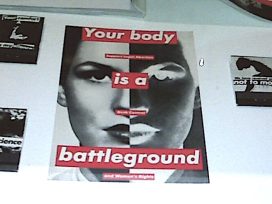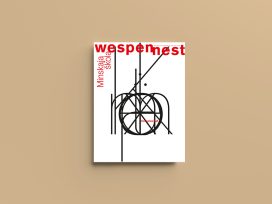On a crisp, clear winter morning in February 2000, thousands of Austrians are demonstrating noisily in an enchanting small square at the centre of Vienna with the prime minister’s office on one side and the president’s office in the Hapsburg palace on the other. Cries of “Widerstand” (resistance) fill the air. Thousands of police in full combat gear are also present. A new government is about to be sworn into office by an unwilling but obliging President.
But the demonstrators who have come to express their anger face to face with the new cabinet are frustrated: Prime Minister Wolfgang Schüssel from the conservative party Österreichische Volkspartei (ÖVP) and his deputy, Susanne Riess-Passer from the Freedom Party (Freiheitliche Partei Österreichs, FPÖ), plus all the other ministers have chosen to cross the square from the prime minister’s office to the palace via a secret tunnel. While they pass back and forth underground, in the square the people cry “Resistance”.
But resistance against what? Against the outcome of a flawless democratic election in October 1999 which had turned into a disaster for the ruling Social Democrats (Sozialdemokratische Partei Österreichs, SPÖ) and conservatives, but brought the FPÖ and Jörg Haider triumph and 27.2% of the electoral vote, the same as the conservatives? Resistance against the fact that the conservatives plus the Freedom Part had a 12-seat majority in parliament? Against the fact that their leaders Wolfgang Schüssel and Jörg Haider were determined to translate that majority into a change of government? Against Jörg Haider who is perceived as a right extremist by international politicians and observers but not by the Austrian political establishment, leave alone the majority of the people?
A populist? Yes. A demagogue? Most certainly. The leader of a party with xenophobic policies? For sure. A man of extreme rhetoric? No doubt. A politician who uses coded language that will be understood by the remaining Nazi sympathisers, or tolerates such words used by others in his party? All without doubt true. But research into the continuous growth of the Freedom Party since Haider’s coup in 1986, shows that from the 1990 election on he made his biggest gains at the polls by attracting the votes of the SPÖ faithful. In the l999 general election, he collected well over 232,000 votes – 5% of the FPÖ’s gains – from people who had previously voted for the Social Democrats. Only 1% was won from the conservatives. By contrast, Vienna’s recent municipal election on 25 March this year, reversed that result. No longer in opposition to the national government but part of it, the Freedom Party lost more than 7% of its former Viennese voters, dropping from close to 28% to little more than 20%. Traditional SPÖ voters returned to their party, giving it an unexpected absolute majority in the local chamber.
If Haider and his Freedom Party are indeed the right wing extremists international observers claim, the disparate results of these two elections allow only one conclusion: the number of voters with extremist tendencies who have and still do support the SPÖ is disconcertingly high – a conclusion social democrats would reject out of hand. This is one reason, at least, why international and Austrian perceptions of the nature of the Freedom Party differ so sharply.
Perhaps the most accurate and fitting description of the Freedom Party is that in the report commissioned by member-states of the European Union and written by the former President of Finland, Martti Ahtisaari, when they were looking for a face-saving way to end the sanctions they had imposed on Austria in February 2000 as a consequence of the presence of the FPÖ in that government. “The nature of the FPÖ its that of a right populist party with some extremist elements,” the report stated in September 2001, paving the way for the unconditional removal of sanctions. And that is much what the Austrians themselves believe.
The Austrian government remains firmly in place and its loss of popular support since last year is not a result of overt extremist tendencies but of a severe austerity programme combined with stunning political blunders – both in the process of law making and in the area of political appointments. However, the truth of Ahtisaari’s definition has been driven home to Austrians on at least three occasions since February last year.
The first was a statement by Haider himself in which he suggested that members of any democratic institution, parliament or otherwise, who issue statements detrimental to the country or the government should be brought to court and sanctioned with the loss of their seats in these institutions. After a public outcry and an apology by the minister of justice, Dieter Böhmdorfer, who had previously been Haider’s attorney and had not refuted the statement immediately, public discussion died down.
The second was after the publication of a book by an FPÖ insider when it appeared that members of the FPÖ and Haider himself might have gained illegal access to data in the security force’s computer to use to their advantage. Haider blamed the ensuing scandal on “the fevered imagination of sick journalists” but, after an official investigation, police officers were suspended and a number of politicians lost their immunity. The cases, which are the responsibility of attorneys under the authority of that same Dieter Böhmdorfer. Have yet to come to court.
The third incident came during the acceptance speech of a newly elected chairman of the FPÖ branch in Lower Austria. Claiming to be ignorant of its significance, he used the coded language of its sympathisers to hark back to the Nazi era. When challenged, he neither apologised nor resigned.
While the eyes of international observers remain fixed on Haider’s more extreme, sometime intolerant and xenophobic statements, and the occasional Nazi quote by others in his party, attention might be more profitably directed elsewhere: to developments in the law and the media. Both originated in policies which were sponsored and implemented by the previous coalition governments of the SPÖ and ÖVP, but have been exploited by Haider.
The early-1990s, saw the passage of a law designed to sanction Nazi-related activities and statements. It was supported by all parties in parliament, including the FPÖ. Since c9oming to power, Haider and the FPÖ have used the same law to silence their critics in the media and elsewhere by taking them to court by the hundreds. The mechanism is simple: since Nazi-related ideologies, statements and activities are illegal, those who imply that Haider and his supporters have indulged in such activities are sued for libel. Proving the breach of law by them which in most cases – according to the exact words of the law – is difficult to do especially if journalistic or political judgements are involved.
The most prominent case recently was that of professor Anton Pelinka. In televised interviews with foreigners, Pelinka drew attention to the similarity of Haider’s language on foreigners and that of the Nazis: the word “parasite” featured in both, he claimed. Haider sued for libel, but the case was dismissed. On appeal, however, the case was referred back to the original court where the same judge sentenced Pelinka. Pelinka appealed and was finally acquitted; but not before public outrage found expression in a heated debate on free expression.
Haider has taken innumerable politicians and journalists to court in the last decade without exciting any serious public interest. Even a recent attempt to take the author of a letter-to-the-editor to court has passed largely unremarked, even though the implications for the average Austrian who seeks to express a view in the media could be serious.
In a recent, disturbing turn of events, the department of justice sponsored plans of an amendment to the criminal law which would penalise the publication of unofficial documents with terms in jail for journalists who make these documents known to a wider public. As with other provisions, a similar proposal had been worked out by the previous government under Social Democratic leadership, but never came into effect. Moreover, the previous amendment stipulated fines for violation of the law, not for imprisonment. An enormous public outcry has greeted Böhmdorfer’s plan but no final decision has been made. Discussion continues with grounds for deep concern.
There are other disconcerting tendencies in the media which, though the present administration may exploit more aggressively, were initiated by previous Social Democratic governments. At the root of the problem is the peculiar structure of the Austrian media. Electronic media are the almost exclusive preserve of the government-run and dominated ORF. Private TV is non-existent, private radio marginal. Over the last 30 years, political intervention, political appointments and political pressures on journalists have been the order of the day. It was common practice under the Social Democrats to appoint party faithful to run radio and TV stations or to exercise influence behind the scenes and has continued since. As with the law, the only difference is the more blatant and aggressive manner of the present government.
The professional and personal implications of such a structure are not hard to work out: with no alternative radio or TV outlets to turn to, journalists who refuse to toe the line have been confronted with loosing their job or leaving the profession.
The degree of concentration of ownership in Austria’s print sector is unique. The biggest daily, Die Kronen Zeitung, has 41% of the market. Previous governments have dropped any anti-trust-actions to avoid further concentration with the result that the two biggest daily newspapers plus smaller ones are now owned by the same company. The present government has also decided not to invoke the anti-trust-laws to prevent further media mergers with the result that the four leading political magazines with a combined market share of nearly 100% will all be owned by a single company. At least two are destined to disappear. Worse: ORF is already collaborating closely with this group to the benefit of the present government.
Where do Austrian journalists turn if they insist on their fundamental right to free expression? Instead of reacting hysterically to Haider’s scandal-seeking words, Europe might do better to pay attention to the undercurrent of the Austrian political system. It only takes a little refinement to render overt censorship unnecessary: it can be achieved without anyone being any the wiser.






